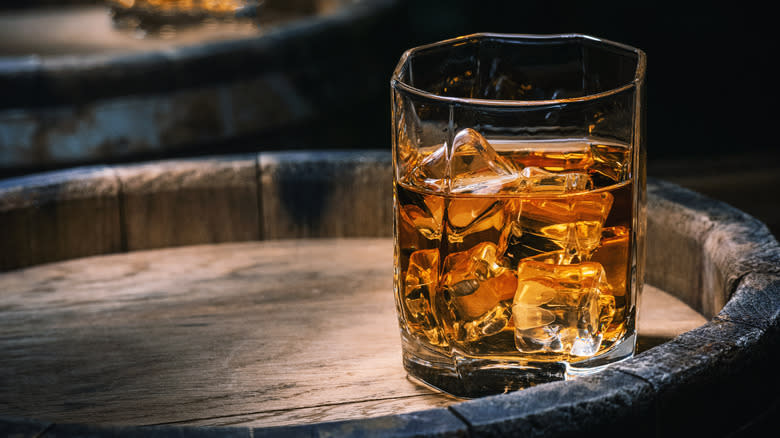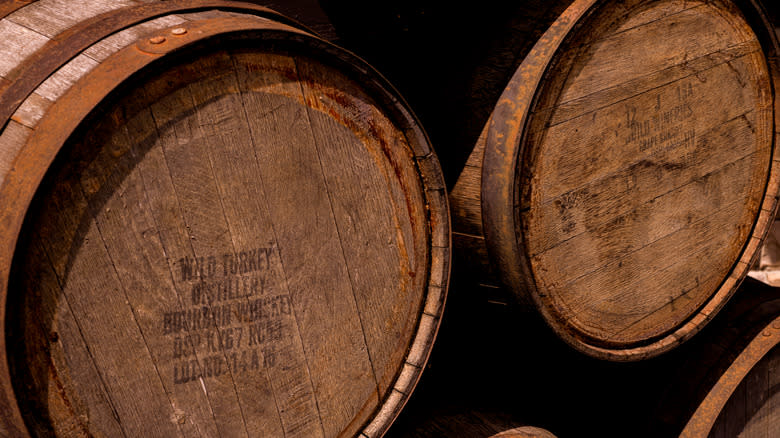Aged Whiskey Isn't Always The Better Option. Here's What To Know

In the world of whiskey, the allure of aged spirits has long held a special place in the hearts of connoisseurs. The belief that older means better has been ingrained in the minds of many. However, the truth is more complex than the number on the bottle. Aged whiskey is not always superior because it's not just about time; it's about the interplay of various factors that affect the outcome of this beloved spirit.
The factors at play when aging whiskey include temperature, time, oxygenation, and the preparation of the barrel used to age it. Whiskey aging is heavily influenced by temperature fluctuations. In warmer climates, the whiskey expands and contracts more within the barrel, allowing it to interact with the wood more, resulting in quicker maturation.
Conversely, in colder climates, the aging process is slower. While aging does impart flavor and complexity to whiskey, there's a point at which it can peak and then decline. This is why barrel selection is paramount. A skilled master distiller must decide the perfect moment to transfer the spirit to its final resting place, the bottle. Oxygen also plays a crucial role in aging; it can help mellow harsh flavors but, if excessive, can lead to a flat or oxidized taste. Finally, the type of wood, previous use of the barrel, and charring level all influence the final flavor profile. Different woods and barrel preparation methods can yield unique results.
Some recommendations are based on first-hand impressions of promotional materials and products provided by the manufacturer.
Read more: 13 Liquors Your Home Bar Should Have
Consider The Flavor Profile You Prefer

One example of this mastery is Wild Turkey's new, limited edition Generations blend. This unusual creation embodies the concept of combining the bold and powerful profile of a younger whiskey with the sweeter, more refined notes of an aged whiskey or bourbon. It marries four types: its 9-, 12-, 14-, and 15-year-old bourbons. Other distilleries produce bottles of whiskey that have been aged for 50 years or more. Very old whiskeys such as these can turn out very well if they are meticulously cared for during the maturation process. But ultimately, it comes down to choosing the best storage placement for climate control and the barrel type that will age well over such long periods -- without losing the distillery's distinct flavor profile.
Although aged whiskeys can be successful, the age of whiskey is but one piece of the puzzle, and not always better. It's not just about the years in the barrel but the artistry in the blending that brings out the best in each sip. So, the next time you shop for a bottle, remember that age is just one of the factors that shape the spirit you love. Instead, shop with an understanding of the whisky profile you prefer, be it spice-drive or sweeter notes.
Read the original article on Tasting Table.